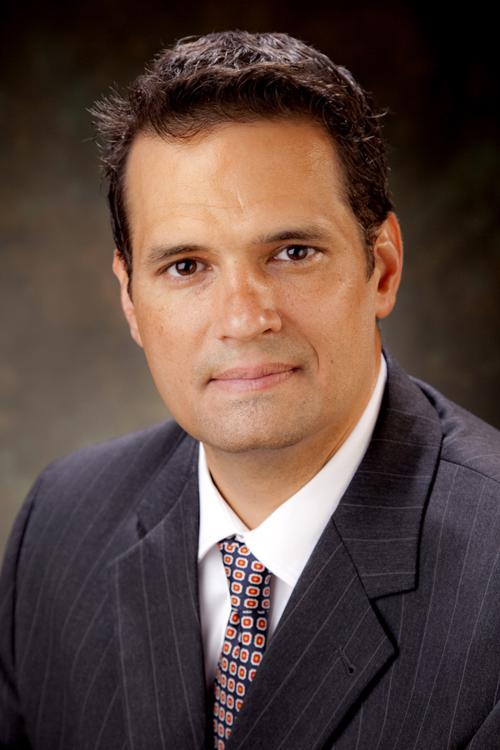If you’ve been diagnosed with some type of condition affecting the brain or spine, you may have been referred to specialized neuroscience providers. Do you have a good understanding of the difference between neurologists and neurosurgeons?
Any new diagnosis can be a bit overwhelming. Knowing what to expect in the days and months ahead can help you prepare. Getting to know your care team is one important step—and when you have a neurological condition, you may be seeing both a neurologist and a neurosurgeon.
Both providers can provide expert care related to the brain, spine and nerves. So, what’s the difference between the two specialties? We’re filling in the details below.
What neurologists do
A neurologist is a physician with specialty training in diagnosing, treating, and managing conditions affecting the brain and nervous system. The nervous system plays an important role in the body—essentially serving as its command center.
When something goes askew in the nervous system, it can cause problems throughout the body, potentially affecting everything from your vision to your coordination and mobility. You may be referred to a neurologist if you’re experiencing memory issues, changes in your sense of taste or smell, vision problems, tingling or numbness, or muscle weakness, among other symptoms.
Neurologists treat a wide range of medical conditions, including:
- ALS
- Bell’s palsy
- Dementia, including Alzheimer’s disease
- Epilepsy
- Huntington’s disease
- Migraines
- Multiple sclerosis
- Neuropathy
- Parkinson’s disease
- Vertigo
Neurologists may have specific expertise in treating certain conditions, such as dementia or Parkinson’s disease, or may provide care for all neurological issues.
To fully understand the underlying cause of any symptoms you’re experiencing, a neurologist will use a number of tools to confirm a diagnosis. This may include blood and urine tests, imaging scans and genetic testing.
If you’re diagnosed with a neurological condition, a neurologist can create a personalized treatment plan that may include medications, physical therapy and other nonsurgical treatment options.
What neurosurgeons do
You might think you know what a neurosurgeon does now that you’ve learned all about what a neurologist does, but you may be surprised! While a neurosurgeon does perform surgical procedures for neurological conditions, they also often provide nonsurgical treatment, too.
Like neurologists, neurosurgeons are physicians with specialized expertise in the nervous system. They are trained to diagnose and treat neurological conditions using both nonsurgical and surgical treatments.
In fact, treatment for many conditions will first include trying medications and other therapies before proceeding to surgery. Neurosurgeons may specialize in certain procedures or in surgery to treat a specific condition, but they often have experience in a wide range of surgical procedures, including both traditional (open) procedures and minimally invasive options.
In addition to providing care related to the conditions outlined above, neurosurgeons may perform surgical procedures for conditions such as:
- Back or neck pain (also known as spine pain)
- Brain or spinal cord tumors
- Carpal tunnel syndrome
- Glioblastomas
- Intracerebral hemorrhage
- Peripheral nerve damage
- Trigeminal neuralgia
- Vascular disorders, including aneurysm or stroke
Neurosurgeons perform surgery on a scheduled basis, but they also perform surgical procedures on an emergency basis in cases such as traumatic injury, stroke or aneurysm.
How neurologists & neurosurgeons collaborate
If you’ve been diagnosed with a condition affecting the nervous system or are experiencing neurological symptoms, your primary care provider or another medical provider may refer you to a neurologist. The neurologist can confirm a diagnosis and recommend a treatment plan to alleviate your symptoms or correct the health issue.
In cases where nonsurgical treatment isn’t effective in relieving discomfort and other symptoms, your neurologist may then refer you to a neurosurgeon to explore surgical options. The two specialties can work together to ensure you have an accurate diagnosis, comprehensive treatment plan, and the care you need.
In some cases, your primary care provider may refer you directly to a neurosurgeon, who can make a diagnosis and recommend nonsurgical or surgical treatment. Both specialties are equally adept at providing care for neurological conditions, with a neurosurgeon performing surgery when needed.
Next steps
Neurologists and neurosurgeons with Northeast Georgia Physicians Group Neurosciences offer care for a full range of neurological conditions. Get more information on our program and your treatment options.



